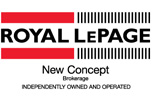Buying a house
1. What kind of house should I choose to purchase?
- Types of Houses
- Condominium
This refers to the ownership structure where there is joint ownership and individual ownership in a building. It is not necessarily a high-rise apartment, although it is often perceived as such due to the good interior facilities. There are convenient shared facilities provided within the building, but the maintenance fee is expensive and the interior space is relatively small.
- Town house
A row of detached houses connected by a common wall, similar to a condominium in terms of easy management, but with a more individual home atmosphere. However, the maintenance fee may be slightly higher and the space may be more compact than a detached house.
- Semi-detached house
This is a type of house where two detached houses are connected by a wall to improve land use efficiency. It provides a similar atmosphere to a detached house, but there may be some privacy issues, and it may be difficult to maintain and repair the roof and exterior of the house.
- Bungalow
A single-story detached house without a second floor, which may not provide as much privacy within the family, but ensures privacy with neighbors. It is a suitable structure for children and elderly people as there are no stairs except where needed.
- Detached house
A two to three-story detached house with a relatively large living space compared to the land area, and the best overall structure to ensure privacy on each floor.
- Are you looking at the neighborhood? Are you looking at the house?
- What makes a good house? Naturally, it would be a sturdy and well-built house. A good house could have hundreds of criteria such as being in a quiet area, having good sunlight, being close to convenient facilities, etc. But if we were to sum it up in one word, what would be the most appropriate? Perhaps it would be a "valuable house." A house that you wouldn't have to worry about when you buy it now and sell it later!
- To achieve this, of course, many important factors such as the appearance, structure, aroma, interior design of the house, etc. are necessary. However, even more important is the level and tradition (reputation) of the neighborhood (neighbors) that the house is located in, the school, and the current state of the neighborhood formation. Above all, from an investment perspective, the most valuable house is a slightly smaller house than the average size, located in a good reputation neighborhood. This is because in such an area, even if the house is slightly smaller or older, the value of the house does not drop much compared to the neighbors' houses due to the solid support of the surrounding neighbors.
- On the other hand, even if there is a luxurious and expensive house that is well-equipped with high-quality materials in an area that does not have a significant advantage in location, the value of that house will try to go down to be similar to that of the surrounding neighbors due to indiscriminate attacks by neighboring neighbors.
- What kind of house can you comfortably put on the market when you sell it later? Of course, it would be a house in a good reputation area. Even if it's a bit old, upgrading or renovating it a bit will reflect more than 100% of the cost in the house price.
- The basics of a "good house" to always keep in mind
- A house that is not noisy (living with the stress of highways, main roads, railways, factories, airports, etc. is unnecessary)
- A house that is not too big compared to the family size (if family members are too far apart, family bonds may also weaken)
- A house that gets plenty of sunlight (a bright home always lifts the mood)
- A house where water flows out when it rains (water seeping into the house is the biggest problem)
- A house close to a local shopping district (within a short distance that can be reached by bike)
- A house close to the children's school (a basic necessity)
- A house with a balanced exterior (plus, there's a high possibility that the interior structure is also balanced)
- A house that has a slightly unique feeling (it appears more spacious than its size and family members are more visible, leading to harmony)
2. In what order do I buy a house?
- Purpose, Size, and Timeframe
- Why are you considering buying a house? For work? School? Boarding? Because it's just you and your spouse left?
- How much space do you need? 2 bedrooms? 3 bedrooms? Do you need an office in the house?
- Until when do you plan to live there? Until your children go to college? Until someone comes to Korea? Until you change jobs? Having a clear purpose, size, and timeframe will help you make a final decision quickly and accurately. This will prevent you from regretting or feeling empty after the move. You can also reduce unnecessary waste. After moving, you can immediately prepare and pursue another future.

- Mortgage Pre-Approval
- By determining the price of a home that you can purchase, excluding additional expenses when buying a home, you can significantly reduce wasted time. If you are able to make a down payment of 25-35% or more of the home price, then there will likely be no issues with pre-approval. However, it is recommended to check interest rates, contract periods, and the ability to repay the full amount at any time in advance.
- If you obtain pre-approval, you won't need to attach mortgage conditions to your actual offer, enabling quick and advantageous negotiations for the buyer.
- To learn about the approximate mortgage limit and monthly installment payments, click on the link below.
- MLS search
- Nowadays, you don't have to walk around without any specific information. You can directly check the interior and exterior of the houses in the area you want and similar price range without leaving your bedroom. You can get a sense of the current form, price, atmosphere, and market trend for various types of homes in different regions.
- Open House Visit
- Have you seen many houses listed on the MLS and become familiar with their size, structure, interior and exterior appearance, and price?
- Now, choose your desired area and refer to the Open House schedule I provided to visit the Open House in person on your preferred date and time, and compare and confirm the things you had in mind, one by one, with your own eyes.
- Each time you visit a different house, you will be able to sort out the differences.
- Now, prioritize your criteria and use them as a standard when selecting your actual home in the future.
- It is not important to see a lot of houses and attend Open Houses for a long time. Instead, it is important to carefully observe and compare only the houses in your desired area and with a similar price range, and develop a keen eye for making accurate comparisons and quick decisions.
- Selecting a Real Estate Agent
- The selection of a real estate agent may not be related to advertising or any connection, but above all, what is most important is that, as an agent who deals with the important property of others, the agent should sincerely, with love, and with help, root the happiness of a family, rather than being greedy for money. If you have time, it is a good idea to meet several agents, and we often see examples in our daily lives where relationships that must be made reluctantly may produce the most undesirable results.
- Once the real estate agent is selected, the buyer should discuss all the information he or she has and wants with the agent and write a buyer agency agreement to establish an additional layer of trust between the two parties. If this is done, a 200% good result can be guaranteed.

- Home selection and making an offer
- As mentioned earlier, the most important thing is finding the right neighborhood for yourself.
- When looking at multiple homes, it's easy to get caught up in various other aspects, such as the appearance or interior design, and forget the priorities you had in mind or wrote down.
- In those moments, it's important to always check your priorities and be cautious in making the final decision.
- It's important to acknowledge that there's no house that will satisfy all of your priority items.
- If the first priority and 80% of the other items are satisfied, it can be considered the best choice.
- Once a home is selected, the agent will analyze and assess the value of the home in various ways and then discuss with the buyer to make the first negotiable offer.
- Lawyer appointment and Home Inspection
- After the negotiation is complete and an offer is made, a lawyer is appointed, and various matters are discussed with the lawyer.
- Whether or not the offer includes a Home Inspection clause, it is recommended to have an inspection done.
- Just as people need regular health checkups, a house that changes ownership should undergo an inspection to properly identify any problems and receive the necessary prescriptions to ensure that the house remains healthy for a long time.

- Closing
- On the day before closing, make sure to purchase home insurance and finalize all legal and miscellaneous expenses with the lawyer, then you will receive the key to the house.
3. Mortgage
- Mortgage
- When you look up this word in an English dictionary, the first word that catches your eye is "mortgage." It refers to a word used to describe getting a loan by mortgaging your home to the bank. Mortgage is the biggest customer and source of profit for banks. However, there is nothing more important to us than a mortgage. Creditworthy customers who maintain a certain income and solid credit history can obtain most of the value of their home through a mortgage, making it easy to own their own home and create a happy sweet home by paying much less in monthly installments (repaying the principal in the installment).
- For those who are new immigrants (within 5 years) and do not have a certain income or have no time to build credit, they usually get a mortgage loan of up to 65% of the purchase price, and they have to pay the minimum 35% as their down payment.
- A conventional mortgage: Generally, a conventional mortgage is a loan of up to 80% of the appraised value of a home. The remaining 20% must be paid as a down payment from the borrower's own funds.
- Mortgage insurance: If you want to receive a loan of 80% or more, which is more than a conventional mortgage, it is recognized as a High Ratio Mortgage, and you can receive a loan at a slightly higher interest rate than a conventional mortgage. In addition, you have to pay mortgage insurance. Sometimes, the insurance payment itself can be a significant amount, so you can pay it off in installments, adding it to your existing mortgage amount.

- Choosing the interest rate, repayment period, and contract period
-
Mortgage borrowers must choose between a fixed interest rate and a variable interest rate. A fixed rate is advantageous when interest rates are rising, while a variable rate is preferable when interest rates are falling. However, if you sell your home during the contract period, a penalty will be imposed. For a variable interest rate, you only need to pay the interest portion of a three-month mortgage, but for a fixed rate, you must pay a fine that includes the difference in interest rates for the remaining contract period. Therefore, you should be very careful when deciding on the contract period and interest rate.
While it is possible to change from a variable rate to a fixed rate, it is not possible to change from a fixed rate to a variable rate. Therefore, you should carefully consider whether to choose a fixed rate when you first sign the contract.
The repayment period is usually 25 years, with shorter periods of 10, 20 years and longer periods of 30 years also possible. It is best to calculate your ability to pay back the principal and interest each month and then decide on the repayment period. If you have the ability to pay more, you can choose a longer repayment period without losing money because the additional amount you pay will go entirely toward repaying the principal, automatically shortening the repayment period.
The contract period usually lasts for five years, with fixed and variable periods of three, five years, and one year, etc. It is a concept different from the repayment period, and it is the agreement period with the bank. When the agreement period expires, the contract ends automatically.
For example, when purchasing a house, you receive a $300,000 mortgage with a 5-year variable rate and 30-year repayment term (for example, $1,200 per month with $600 principal and $600 interest). If you sell the house after 3 years, you will subtract 3 months' worth of interest payments on the mortgage ($1,800) and the remaining balance on the mortgage (about $280,000) from the selling price, and receive the remaining amount at closing from the attorney in charge.
- Criteria for determining mortgage limit
- Gross Debt Service Rate (GDS): The mortgage loan amount is determined within the range that the total amount of monthly mortgage repayment (principal + interest), one-twelfth of property tax (monthly average payment), and 50% of monthly heating and condo management fees do not exceed 32% of the monthly average income (total amount before tax deduction).
- Total Debt Service Rate (TDS): The mortgage loan amount is determined within the range that the other monthly payment debts (such as monthly car payments, credit card debts, and other debts) do not exceed 40% of the monthly average income in addition to the items included in the GDS ratio (monthly mortgage repayment, monthly property tax, and 50% of monthly heating and condo management fees).
- Mortgage Application and Approval
- The basic requirement for mortgage approval at commercial banks these days is income, not assets. Except for the new immigrant program (35% down payment), most mortgage amounts are calculated based on income.
- Even if you do not have a certain income, or if you are a self-employed person, a student studying abroad, or a foreigner who finds it difficult to obtain a mortgage, there are specialized products for such people. Each bank has different products and methods, so many people give up in advance, thinking that there is no mortgage product that fits them, after only inquiring with their own bank. However, please do not give up and contact us. There is definitely a tailored mortgage product for you.
- Many people give up because they only look for the lowest interest rates from commercial banks and fail to meet other conditions or income amounts required for approval. However, if it does not work, it is a good idea to first sign a contract with a bank product with a slightly higher interest rate, and then after 6 months to a year, change to the bank you originally wanted, or switch to a lower interest rate product to continue holding the mortgage.
- At MyBestHome, we help you obtain a good mortgage product under any circumstances. Please contact us for any situation.
4. The process of making an offer
- Although it is briefly explained in the "Buying a House" menu on my website, an offer is a document that a buyer who intends to purchase a house sends to the seller to express their intention to buy the house. The Agreement of Purchase and Sale, which is the offer document, should include the desired purchase price of the house (which can include items the buyer wants to include in the sale, such as a refrigerator, stove, dishwasher, washing machine, dryer, lights, chandeliers, curtains, blinds, air conditioning, built-in TV, etc.), the date the buyer wants to move in and receive the keys from the lawyer, the amount of deposit to be paid when the contract is finalized, and the time frame during which the offer is effective and cannot be cancelled. The realtor must explain all the details in the document to their client and the client should discuss and decide with the realtor after fully understanding everything.

- Although it is briefly explained in the "Buying a House" menu on my website, an offer is a document that a buyer who intends to purchase a house sends to the seller to express their intention to buy the house. The Agreement of Purchase and Sale, which is the offer document, should include the desired purchase price of the house (which can include items the buyer wants to include in the sale, such as a refrigerator, stove, dishwasher, washing machine, dryer, lights, chandeliers, curtains, blinds, air conditioning, built-in TV, etc.), the date the buyer wants to move in and receive the keys from the lawyer, the amount of deposit to be paid when the contract is finalized, and the time frame during which the offer is effective and cannot be cancelled. The realtor must explain all the details in the document to their client and the client should discuss and decide with the realtor after fully understanding everything.
- The most important thing is to establish a condition clause that allows the contract to be invalidated without any disadvantages after the contract is signed. Although there are several conditions, it is advisable to attach at least the Mortgage Approval and Home Inspection conditions.
- This is a safety net that allows the contract to be easily invalidated and the deposit to be returned without any inconvenience if there are unexpected financial problems, structural or equipment deterioration problems, or any other unexpected problems with the house. Typically, the condition termination period is one week after the contract is signed.
- Once the offer document has been completed through consultation with the realtor, negotiations are made with the listing agent using the document. There are usually two methods. One is for the agent to meet with the seller and their agent directly to explain (in this case, the buyer's agent negotiates and modifies the demands of the buyer and the seller, and negotiations are usually concluded within 2-3 hours), and the other is for the document to be modified by email or fax while it goes back and forth to make a decision. This method involves negotiating by phone and can take 1-3 days depending on the situation.
- If negotiations are successful and a decision is made, during the condition termination period (usually one week), the buyer will review all aspects of the plan and conditions and check the condition of the house through an inspection. If there are no problems or if any problems are resolved satisfactorily, they sign the final condition termination document (waiver), and the contract process is complete.
- During the offer, the buyer's realtor negotiates with the seller's realtor, sometimes cautiously and sometimes amiably, but actually fighting an invisible battle for the maximum benefit of their client. In that battle, they must understand the seller and the seller's agent's tendencies, establish a strategy accordingly, and act on it. That is the role of an agent, namely, a representative.
- After that day, you must pay the deposit stated in the contract and appoint a lawyer, and then get the key before the Closing Date. Before receiving the key, you must also purchase home insurance and prepare for the move. The remaining balance (house price - mortgage amount - deposit + settlement fees, etc.) must be paid to the lawyer by check one day before receiving the key. Once you receive the key on the Closing Date, the entire process is complete.
- If the reason for termination cannot be satisfied within the typical one-week termination period, notify the Seller's Agent and sign a Mutual Release document to invalidate the contract and receive a refund of the deposit.
- One more thing to add is that it's a good idea to visit the house again one or two days before the Closing Date to check its condition. Make sure that nothing has changed, nothing has been damaged or missing, and that all appliances are working properly. If there is a problem, notify the Seller's Agent and discuss a solution, or if that is not possible, you can hire a lawyer to withhold a certain amount of payment until it is resolved. You can include a clause allowing for another visit in the initial offer.
5. Selecting and establishing a relationship with a Realtor (Agent)
- When selecting a realtor, there are many cases where people receive recommendations or suggestions from friends or relatives, or contact them after seeing newspaper, magazine, or other advertisements. Any method is possible and it is always a common way. However, when making a decision, it is recommended that you meet them in person and make a decision after consultation. Through consultation, you can find out whether the realtor is passionate and professional, has overall knowledge of the Toronto real estate market, provides information on the local situation, schools, future vision, and shows whether they can provide various useful information and assistance needed for settling in, especially for new immigrants or study abroad families, after the home has been selected, such as inspection, mortgage, insurance, lawyer, and other things. You will be able to know various things. Just like finding your own home, you will know to some extent whether they are passionate about their work when you meet and have a conversation.
- Choosing the right realtor for yourself may account for more than 80% of the success in buying or selling a property. Although there are occasional cases where the relationship with the realtor deteriorates after working together towards a common goal or due to the selection of a bad house, like in cases where someone familiar requests an insurance contract and cannot refuse, most of these cases are situations where there is no other choice but to choose.
- After selecting a realtor, it is advisable to explain your desired goals to your realtor in as much detail as possible. Depending on your situation, the optimal location and type of housing will be determined based on factors such as budget, desired items, schools, residential type, type of housing, age, and moving time. Just because many Koreans live in a certain area or because it is popular by word of mouth, it may not necessarily be the right area for you. In fact, in some cases, it could be the worst.
- When selecting a Realtor to view and choose a house together, the Realtor's role is not just to select and guide you through the houses you see, but also to investigate and analyze the market value of the house by looking at the price, surrounding market trends, and past transaction records of the house while looking at it with you. The Realtor should also read the advantages, disadvantages, problems, and potential of the house at the same time, and present possible ways to increase its value while assessing whether problems can be solved or not. This is to help the client make an informed decision.
- It is recommended that the Realtor choose one person to form a team and work together steadily through teamwork. In Korea, the sale of a house can only be done through one Realtor's system, so it is crucial to have a professional Realtor who can provide specialized services. Many people who have experience buying and selling real estate in Korea have contacted numerous Realtors and may end up seeing the same house multiple times, making it difficult to receive professional services or develop trust with each other. The ideal result can be achieved by having one professional Realtor and team to receive consistent help.
- Sometimes, there may be cases where a foreign Realtor seems to be more capable, but if they cannot communicate fluently in English, they may face significant challenges. They need to communicate with English speakers in every aspect, such as inspection, mortgage, insurance, and lawyers, and may need to sign what they are told to without fully understanding the terms, which can lead to problems later. In addition, it may not be easy to recommend a house suitable for Koreans without fully understanding Korean culture, family style, school, and housing structure preferences.
- Especially when buying a house, the majority of cases involve selecting a Realtor and signing a "Buyer Representation Agreement" to proceed with the purchase process. However, many foreign buyers may not fully understand what this document entails, which could lead to a breach of contract if the buyer purchases the house through another Realtor during the agreed-upon period. In such cases, the buyer may be required to pay a fine of 2.5% of the purchase price to the original Realtor. Therefore, it is essential to choose a professional Realtor who can provide specialized services and communicate fluently.
- Sometimes, when attending an open house, there are cases where a buyer immediately signs a contract with the listing agent because they like the house. This can be more risky than selecting a foreign realtor. In this case, the agent becomes a dual agent who works for both the seller and the buyer. Often, the agent has a close relationship with the seller and was the seller's agent from the beginning, so the agent tends to favor the seller, especially if the buyer is not fluent in English. In many cases, the agent does not disclose any special defects or hidden flaws in the house to the buyer before the contract is signed. There is usually little recourse for the buyer after the fact.
- In such cases, the house often appears to be in excellent condition or is priced significantly lower than comparable properties on the market. However, such houses should be thoroughly evaluated for their market value, including their location or structural problems (e.g., corner house, proximity to factories or high-voltage power lines, noisy areas, undesirable facilities nearby, etc.) or any hidden flaws that may not be immediately visible.
- Open houses generally showcase only a small portion of the properties currently on the market. Sometimes, attending an open house can cloud one's judgment when considering a house that is outside of their budget. After attending open houses, it is best to choose a realtor and work together to plan and compare properties within your budget or slightly above.
- Buyers do not pay real estate agent fees when purchasing a property. However, they will have to pay fees when selling the property, so it is important to have a realtor who can represent your interests and work hard on your behalf.
During the process of conducting an offer and in the relationship between realtors and customers, there are many important factors and contents, but for now, I will summarize a few major points. The role of a realtor in the Greater Toronto Area is quite different from that of a real estate agent in Korea. In particular, selecting a realtor is as important as selecting a spouse in the process of immigrating and settling down. It is not just important to sign a contract for a house right now, but rather, depending on the realtor’s views, vision, and attitude, and the impact they have on the immigrant family, they can play a very important role in the stability and prosperity of the household economy for 5 years, 10 years, or even beyond into retirement.


